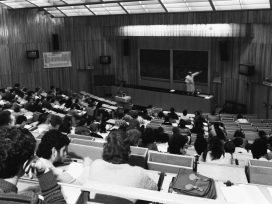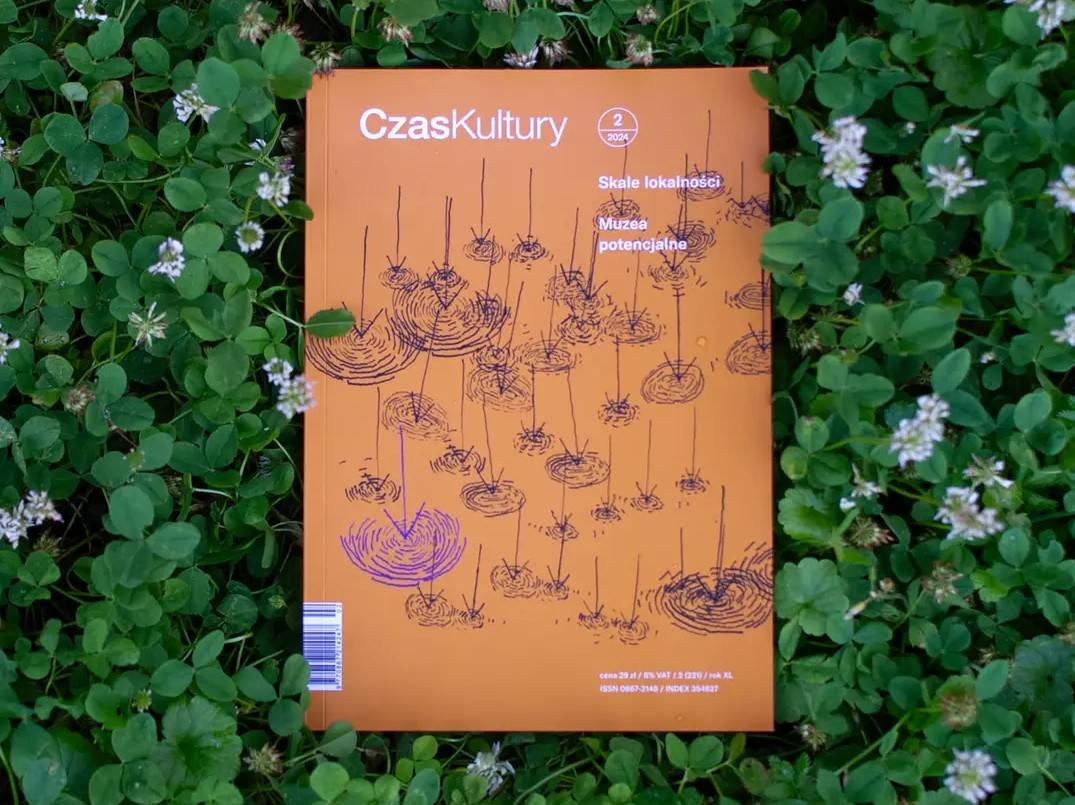
Expectations, standards, and requirements in higher education vary from country to country. In the third episode of the Knowledgeable Youth podcast Ukrainian students embark on the complex subject of tertiary education.
The politics and psychology of locality: on reviving local communities as high-tech expands and diversifies; forming networks against entropy; the Tortoise Strategy for caring; and rewriting life scripts.
In an increasingly unstable world, the urge to reclaim the familiar and the local is palpable. In an issue looking at the politics and psychology of locality, Czas Kultury (Poland) examines links between identity, community and space through the prism of writings by philosopher Bernard Stiegler and in the context of unprecedented ecological dangers globally.
‘Locality’ is not just a physical setting identified with its inhabitants, Stiegler argued, but a happening on any scale that leads to personal or group ‘individuation’ – a position or attitude translated into action. Today, however, new technologies de-territorialise and decontextualise the people inhabiting ‘localities’.

Social philosopher Michał Krzykawski introduces the Networking Ecologically Smart Territories (NEST) project, which seeks to revive local communities as high tech expands and diversifies. The aim is to open new channels of social interaction between groups, challenging a dominant economic model that encourages the automation of knowledge in ways that are psychologically and socially toxic.
‘A lost diversity of knowledge is as perilous to human life as the loss of biodiversity is to life on the planet’, Krzykawski writes. The key is to increase individual citizens’ participation in decision-making, to ‘empower people to create knowledge communities’, and to encourage new forms of collaborative learning. Projects in areas as diverse as L’Île-Saint-Denis in Paris, the Galapagos Islands, the Croatian island of Cres, and Dąbrowa Górnicza in southern Poland are engaging communities with academics in co-creative research, exploring new forms of economic exchange that respect the history and needs of each place.
In a complementary article, Krzykawski proposes the creation of a new institutional network, linking universities with non-academic researchers and activists, to help step away from an economic development model that continues to deplete natural and human resources. The network would put into practice Stiegler’s theory of ‘neganthropology’ to counter damage wrought by the Anthropocene..
Every Anthropocene event marks ‘a vast increase’ in entropy – the inescapable decline into disorder. ‘Humans are manufacturers of entropy’ but, if we cannot stop the drift into chaos, we can slow it. There is ‘a cognitive error at the heart of modern industrial economies’, Krzykawski argues. It lies in ‘a disregard for the phenomenon of entropy and the connection between its increase and economic processes’.
Neganthropology seeks experimental and innovative ways to correct this error by controlling entropy locally, factoring in socio-cultural circumstances and conditions without losing the global perspective. The network Krzykawski proposes would include the widest possible range of committed participants, create new bonds to transform institutions, change perspectives and methodology, and help fulfil social, cultural and learning needs.
The individuation process is neither smooth nor simple, novelist Anna Cieplak points out, picking up on Stiegler’s thought. It represents ‘a lifelong challenge, especially where the environment has previously sought to block its course’. Violence of any kind is a basic obstacle, and women sense this acutely. ‘In addition to structural exclusion, many of us have personal experience of violence from the very people who co-create our localised territorial frameworks… As we pass – via some kind of event – into individuation, we must take account of longstanding hierarchical structures which affect the transition.’
Supporting the localities that lead to individuation demands the Tortoise Strategy: ‘caring for something for longer than just a few years, penetrating its structures without forcing, and understanding fully what is being done. Not because it provides a good catchphrase, but because it harmonises with the locality in question and gives it time’.
A section on the social impact of former home spaces transformed into public institutions explores how remembrance is made. Justyna Szklarczyk looks at written and photographic records left by workers at the State Agricultural farm in Bęsia. Once a palace owned by an East Prussian family, after World War II the estate became a collective and was resettled by labourers.
As the memoirs of worker Stanisława Bigus reveal, early conditions under communism were toxic. Stanisława lived in a room with unglazed windows. Her job was to cart potatoes or do backbreaking farmwork using horses and equipment left by the evicted landowners. Later she became a milkmaid, working 12 hours a day from 4.00 a.m. ‘There were four of us, all women. The cowshed had plenty of cows and we each had to milk twenty-three. There was no kindergarten in Bęsia then, so sometimes I brought the kids.’
As hierarchies and management changed, memories became blurred. The former estate offered space for exploration, fun and a sense of social mobility. Living there permitted play with images of privilege – a worker could use the estate carriage for a wedding, or pose for a family photo in front of the palace. It was a way of creating new social and life scripts, yet the reverence with which Polish post-war documentary materials treat the cultural wealth of the nobility ‘reveals an enduring fascination with the lives of the advantaged.’
Review by Irena Maryniak
Published 23 October 2024
Original in English
First published by Eurozine
Contributed by Czas Kultury © Eurozine
PDF/PRINTSubscribe to know what’s worth thinking about.

Expectations, standards, and requirements in higher education vary from country to country. In the third episode of the Knowledgeable Youth podcast Ukrainian students embark on the complex subject of tertiary education.

The crux of different peoples’ history, and of humanity as a whole, is always food and hunger. In the final analysis, it’s the stomach that counts.